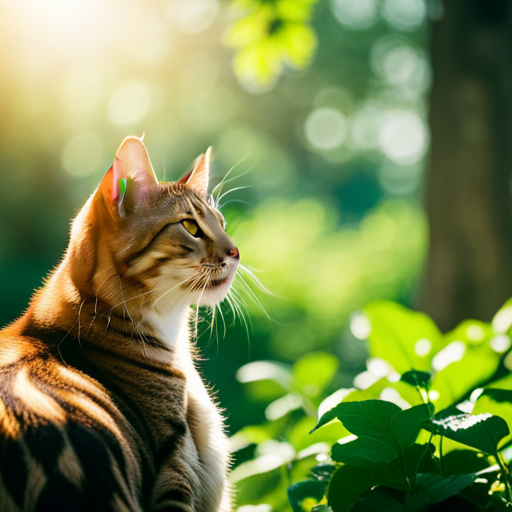Vitamin D plays a critical role in maintaining the health and well-being of cats. It is an essential nutrient that contributes to various physiological processes, including bone development, immune function, and calcium homeostasis. Cats rely on dietary sources to meet their vitamin D requirements, as they are unable to synthesize it endogenously.
The signs of vitamin D deficiency can range from subtle skeletal abnormalities to more severe conditions such as rickets or osteomalacia. However, excessive intake of vitamin D can also lead to toxicity, which poses significant risks for cats.
This article aims to provide an evidence-based overview of the role of vitamin D in cat health, including its dietary sources and recommended daily intake. Additionally, we will explore the potential benefits of vitamin D supplementation for cats and discuss the importance of monitoring their vitamin D levels.
Lastly, consulting with a veterinarian regarding appropriate supplementation strategies is crucial for ensuring optimal feline health. By understanding the significance of vitamin D in supporting cat immune function and overall well-being, owners can make informed decisions about their pet’s nutrition and care.
The Role of Vitamin D in Cat Health

The involvement of vitamin D in cat health is crucial for maintaining optimal physiological functioning. Vitamin D plays a significant role in various aspects of a cat’s well-being, including behavior and bone health.
Firstly, the role of vitamin D in cat behavior is essential. Cats require an adequate amount of vitamin D to regulate their mood and overall temperament. Vitamin D deficiency can lead to behavioral changes such as lethargy, irritability, and decreased activity levels. Additionally, studies have shown that cats with low levels of vitamin D may exhibit signs of depression or anxiety-like behaviors.
Furthermore, the importance of vitamin D in cat bone health cannot be overstated. Vitamin D aids in the absorption and utilization of calcium and phosphorus, which are vital for maintaining strong bones and teeth in felines. Insufficient levels of vitamin D can result in weakened bones, increased risk of fractures, and skeletal deformities.
